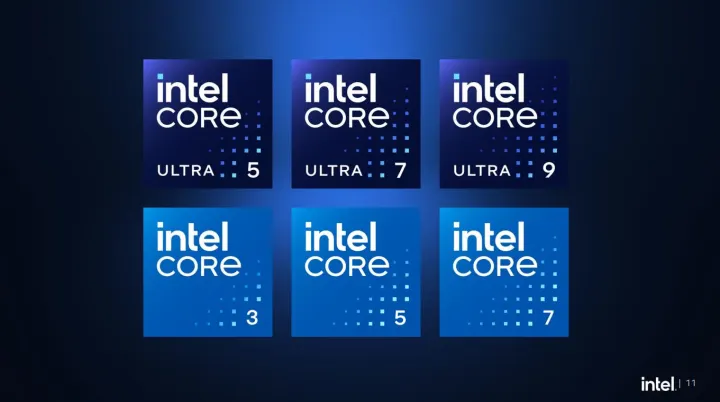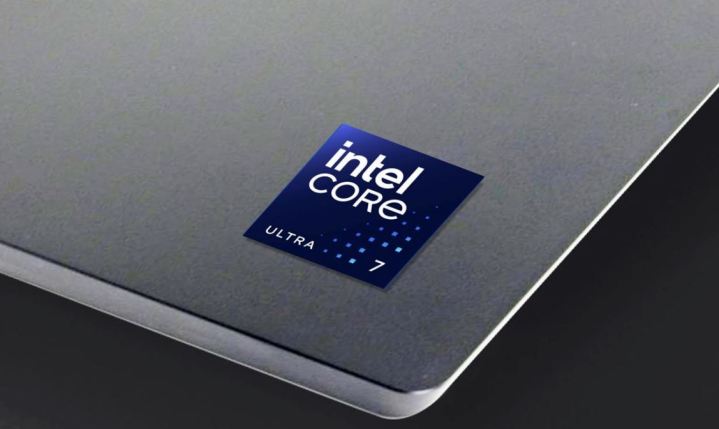
Intel has just made a pretty significant announcement — it’s rebranding its processors. Starting with Meteor Lake CPUs, Intel’s consumer processors will bear a new name: Intel Core and Intel Core Ultra. However, the most noticeable change is that Intel is dropping the “i” in its naming scheme.
The change might somewhat subtle on the surface, but it also says something meaningful about the state of the industry and Intel’s role.
With the new naming convention, Intel no longer seems to have a distinct branding of its own. Instead, it sounds a bit like a blend of what AMD and Apple are doing. Seeing as Apple computers used to run on Intel silicon, but Apple has now fully migrated to its own M2 chips with the recent addition of the Mac Pro, it certainly feels like Intel is losing at its own game. At the very least, Intel doesn’t think its brand means what it used to for the average buyer.
It now borrows from AMD (which may have initially borrowed from Intel, so we’ve gone full circle) and from Apple. We have the 3/5/7/9 tiers with no additions, just like AMD. There’s no mention of generation, and lastly, the Core Ultra is an unfortunate choice seeing as Apple also uses Ultra for its top chips. We’ll have to see how long it’ll take for people to adapt to these new changes, but it’s safe to say that Apple is the one to retain a distinctive naming scheme.
Intel is also dropping mentions of generation.
With the new branding, Intel is focusing on the “Core” part of the naming scheme and drops the “i” from processor tiers like i3 and i9. As such, a CPU that would have previously been called “Intel Core i5-14600K” will now become “Intel Core 5 14600K.”
Overall, the tiering will still be split into 3/5/7/9, just like AMD Ryzen CPUs, but the iconic “i” is now gone. That’s not all of it, though. Intel is now trying to further emphasize the difference between its mainstream chips and the high-end segment.
From now on, Intel’s future CPUs will either belong to the Intel Core family or the Intel Core Ultra family. There is some overlap between the two, as the Core and Core Ultra both have tier 5 and 7 chips. It’s a little confusing, but the general idea is that the Core Ultra chips offer premium performance. Intel hasn’t explained how overclocking fits into that, but Tom’s Hardware notes that a chip won’t need to belong to the current K-series in order to be branded as Intel Core Ultra.
Intel is also dropping mentions of generation. Before, we’d often see Intel refer to its CPUs as, for example, “Intel 13th Generation Core i9-13900K Processor.” Now, we’ll have to rely on the numbers after the tier to tell the generation. This isn’t new, though.

The company also states that it prefers for the processor number to follow the word “processor.” As such, the full name of a next-gen CPU would now be Intel Core Ultra 7 Processor 14700K. It’s safe to assume that most people will drop the “processor” much the way Intel dropped the “i,” though. We’ll start seeing references to Core Ultra 7 14700K instead.
These changes don’t apply retroactively, so all the Raptor Lake (and older) chips that we already know are sticking to the old naming convention. However, it’s unclear what exactly will happen to Intel’s new products. After all, we’re expecting Meteor Lake for mobile first, and desktop users are most likely only getting a Raptor Lake refresh.
For Intel to change its tried-and-true branding is a bold move. It’s hard to say if it was necessary. It’s funny how small things can mean a lot — without the “i,” Intel just doesn’t seem to stand out as much anymore.
We seaw it coming over a month ago, and yet, it still feels weird. The changes won’t leave Intel’s products unrecognizable, but it certainly indicates we’ve entered a new era in the world of processors.
Editors’ Recommendations
Services Marketplace – Listings, Bookings & Reviews
